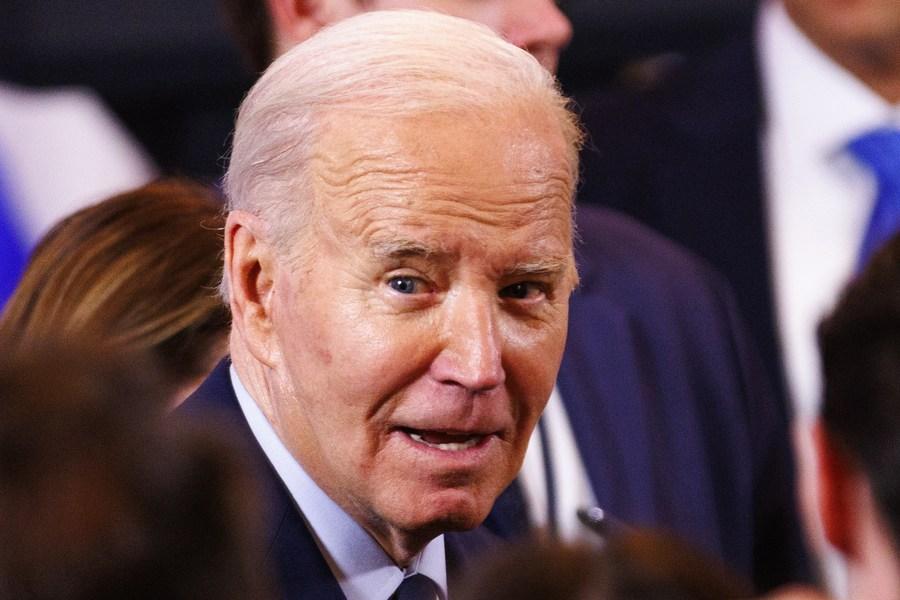
 0 Comment(s)
0 Comment(s) Print
Print E-mail Xinhua, May 9, 2024
E-mail Xinhua, May 9, 2024

U.S. President Joe Biden is pictured during an event at the White House in Washington, D.C., the United States, on April 4, 2024. [Photo/Xinhua]
The United States will not send weapons to Israel if they are to be used in a major military operation in Rafah, in southern Gaza Strip, U.S. President Joe Biden told CNN on Wednesday.
The president's remarks were his first to address U.S. arms supply to Israel following the administration's decision last week to put the shipment of bombs on hold, a warning that Israel should not launch an invasion in Rafah absent credible protection of civilian lives.
"Civilians have been killed in Gaza as a consequence of those bombs and other ways in which they go after population centers," Biden said, referring to 2,000-pound bombs whose delivery to Israel has been halted. U.S. media reported that also being delayed was the transfer of 500-pound bombs.
"We're going to continue to make sure Israel is secure in terms of Iron Dome and their ability to respond to attacks that came out of the Middle East recently," Biden said. "But it's, it's just wrong. We're not going to -- we're not going to supply the weapons and artillery shells."
The Israel Defense Forces has now taken control of the Gazan side of the Rafah crossing linking Egypt and Gaza. Biden said Israel's actions so far have yet to cross a red line of entering heavily populated areas in Rafah.
"They haven't gone into the population centers. What they did is right on the border. And it's causing problems with, right now, in terms of - with Egypt, which I've worked very hard to make sure we have a relationship and help," Biden said.
"I've made it clear to (Israeli Prime Minister Benjamin Netanyahu) and the (Israeli) War Cabinet: They're not going to get our support, if in fact they go on these population centers," he said.
Biden's words were interpreted by U.S. media as drawing a red line for the Israeli government.
What's also significant is that the president acknowledged that bombs his nation sent to Israel had been used to kill civilians in the conflict in Gaza, indicating that the United States played a role in the slaughter.
Earlier in the day, as he testified on the Pentagon's Fiscal Year 2025 budget proposal, U.S. Defense Secretary Lloyd Austin told Senators on Capitol Hill that the Pentagon is "going to continue to do what's necessary to ensure that Israel has the means to defend itself. But that said, we are currently reviewing some near-term security assistance shipments in the context of unfolding events in Rafah."
"We haven't made any decisions," Austin added. "We did pause as we reevaluated some of the security assistance we're providing."